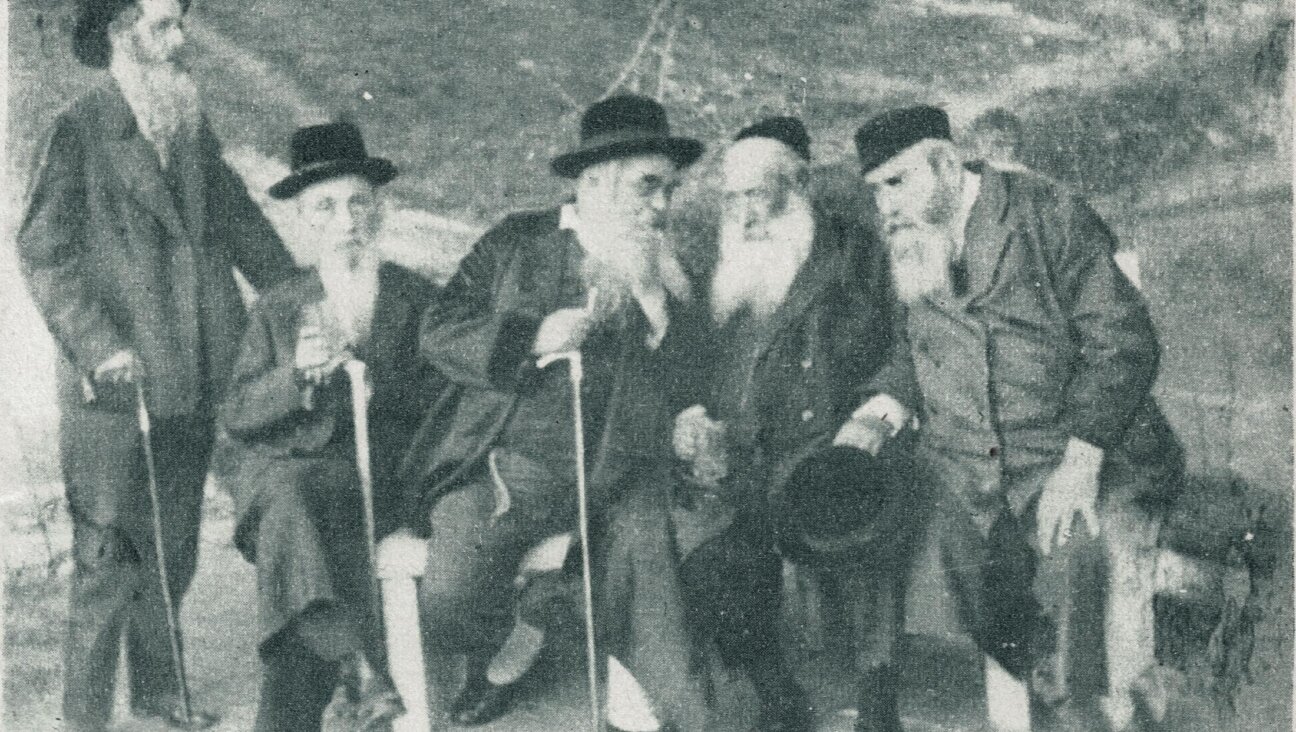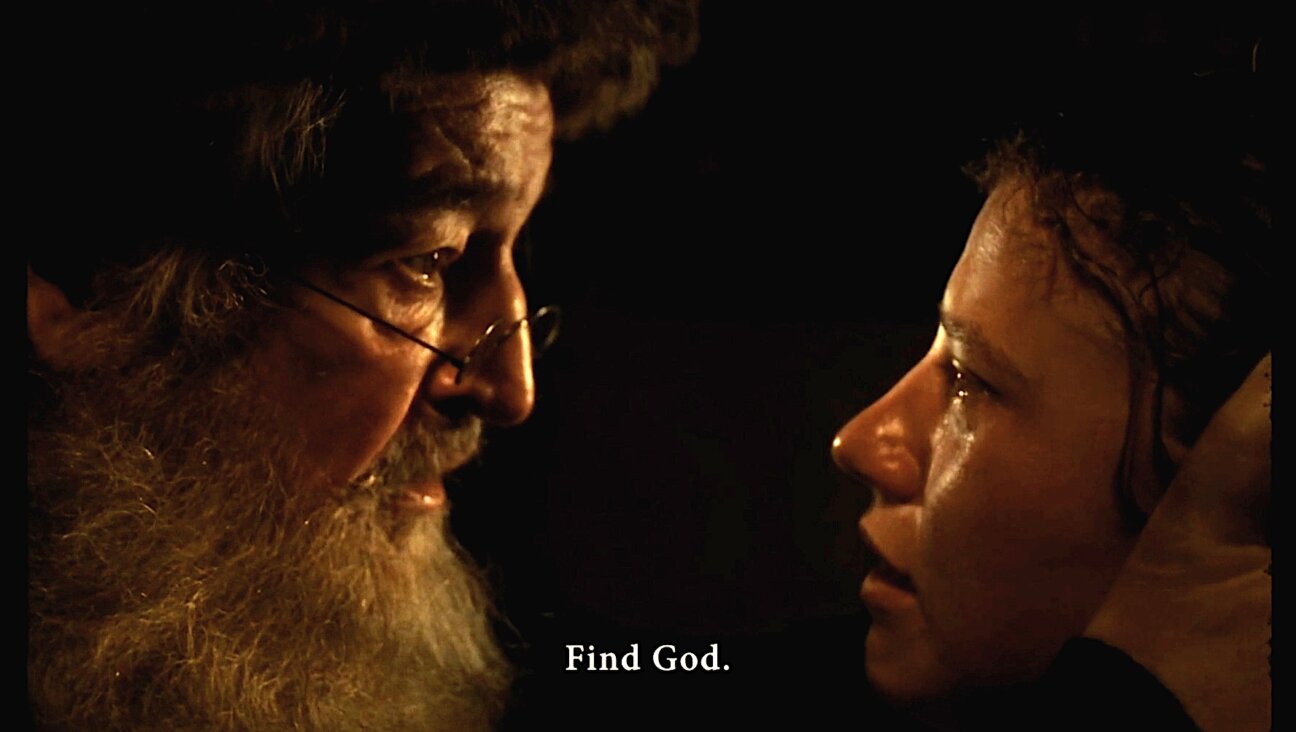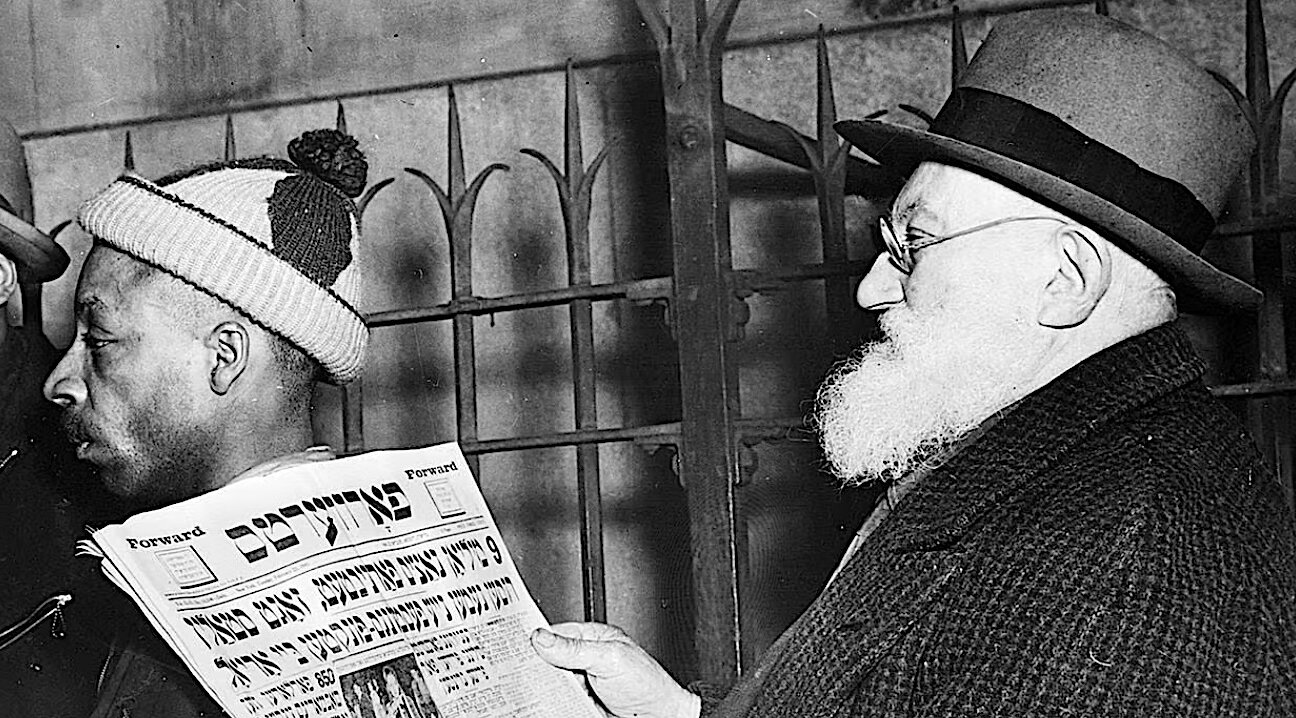Now streaming: Musician’s fascinating journey to find Ukrainian Jewish folksongs

Image by songsearchermovie.com
In the 1920s, after the horrific pogroms that followed the Russian Revolution, a Jewish musician and ethnomusicologist named Moyshe Beregovsky, also known as Moisei Iakovlevich Beregovskii, travelled across Ukraine with a phonograph in hand, seeking to record the authentic Yiddish music of Ukrainian Jewry.
Among the hundreds of songs that he collected were Yiddish folk songs, nigunim (wordless melodies), klezmer music, purim-shpiln (Purim plays) and songs that described Soviet Jewish wartime service in the Red Army. Most of the Jews he recorded were later murdered by the Nazis. As a direct result of Beregovsky’s dedication and perseverance, a significant portion of the Yiddish musical heritage has been saved.
Beregovsky is the subject of a fascinating new documentary, “Song Searcher”, that is now streaming. (To watch, click here and type in the password: fordham). The film, directed by the award-winning Russian filmmaker Elena Yakovich, was shot on location in Ukraine, where the region is sadly once again embroiled in violence. The music rescued by Beregovsky is heard throughout the film, either in its original archival version or performed live by renowned klezmer musicians.
“Song Searcher” was originally scheduled to be screened in conjunction with an online panel discussion of the film organized by Fordham University on April 26, but because of the events unfolding in Ukraine, the organizers decided to make the film available to viewers now.
The discussion in April will go on as scheduled, featuring renowned experts on the history of the Jews in the former Soviet Union, including Anna Shternshis (University of Toronto), Gennady Estraikh (New York University), Lyudmila Sholokhova (NYPL-Dorot Jewish Division) and Mark Slobin (Wesleyan University).
Watch the movie (A password is required. Here it is: fordham)
Register for the discussion about the film
A message from our Publisher & CEO Rachel Fishman Feddersen

I hope you appreciated this article. Before you go, I’d like to ask you to please support the Forward’s award-winning, nonprofit journalism during this critical time.
At a time when other newsrooms are closing or cutting back, the Forward has removed its paywall and invested additional resources to report on the ground from Israel and around the U.S. on the impact of the war, rising antisemitism and polarized discourse.
Readers like you make it all possible. Support our work by becoming a Forward Member and connect with our journalism and your community.
— Rachel Fishman Feddersen, Publisher and CEO






























